
Assessing the decent employment creation strategies and programmes being implemented in Zimbabwe, and implications for poverty reduction, stability, and sustainability
Assessing the decent employment creation strategies and programmes being implemented in Zimbabwe, and implications for poverty reduction, stability, and sustainability.
- Year Published: 2022
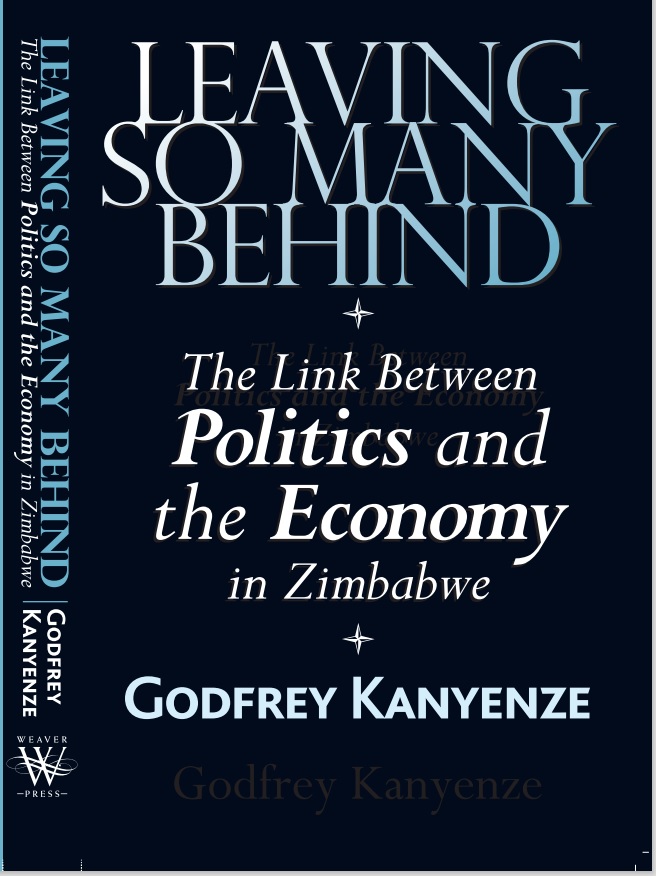
Leaving So Many Behind: The Link Between Politics and the Economy in Zimbabwe
In this accessible and authoritative book, Godfrey Kanyenze provides a comprehensive and far-reaching analysis of the socio-economic development in Zimbabwe in light of the expanding authoritarianism and the ongoing destruction of democratic institutions during the four decades after independence.
- Year Published: 2021
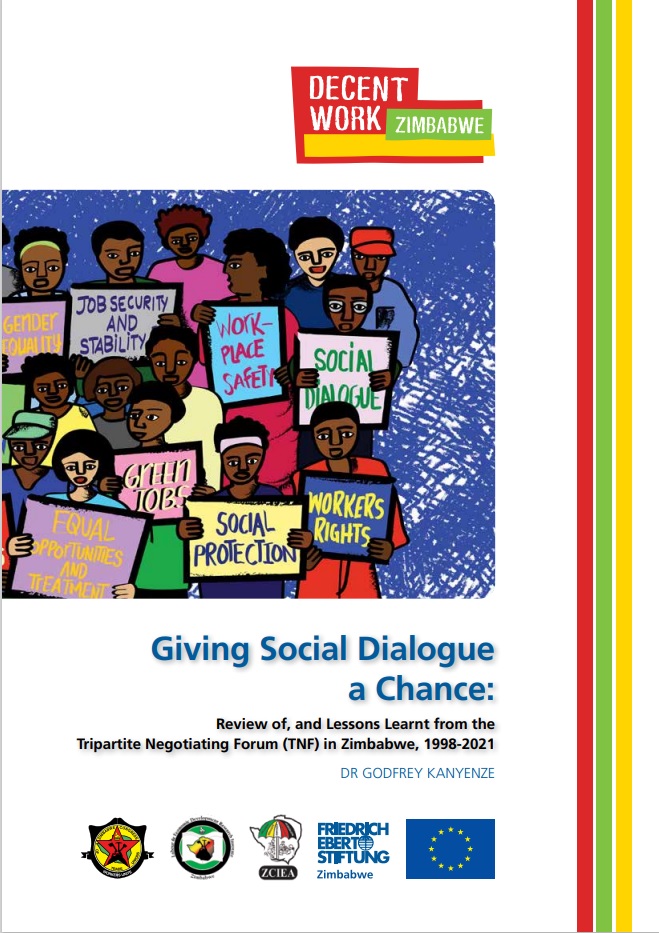
Giving Social Dialogue a Chance: Review of, and Lessons Learnt from the Tripartite Negotiating Forum (TNF) in Zimbabwe, 1998-2021
Social dialogue is a well-established instrument which has gained traction, especially amongst developed countries, and its use is being explored to deal with an array of national challenges, particularly in developing and fragile states. Social dialogue is enshrined in the ILO’s Declaration of Philadelphia (1944), which states: “The war against what requires to be carried on with unrelenting vigour within each nation, and by continuous and concerted international effort in which the representatives of workers and employers, enjoying equal status with those of governments, join with them in free discussion and democratic decision with a view to the promotion of the common welfare”.
- Year Published: 2021
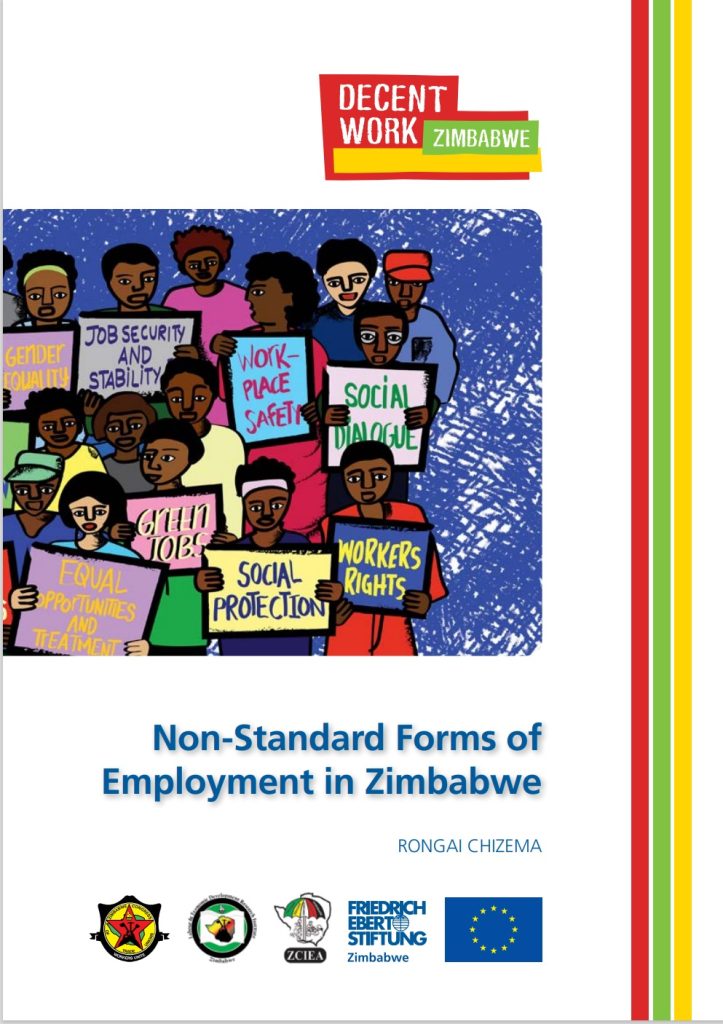
Non-Standard Forms of Employment in Zimbabwe
Non-standard forms of employment in Zimbabwe.
- Year Published: 2021
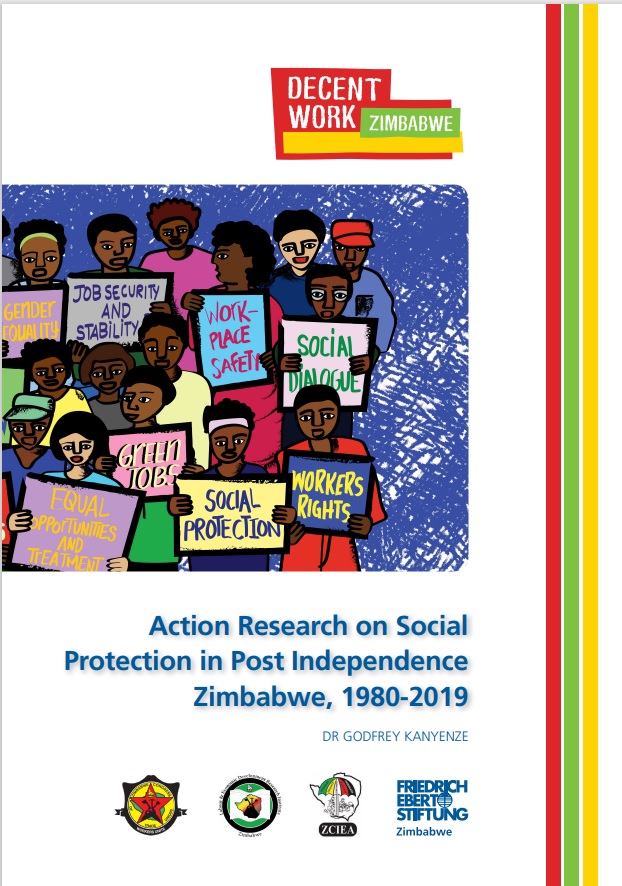
Action Research on Social Protection in Post Independence Zimbabwe, 1980-2019
Social protection is recognized as a human right that provides social security assistance and income for those unable to work as a result of sickness/illness, disability, maternity/child care, work injury, unemployment, invalidity or old age and retirement. It promotes access to basic social services such as health care as well as income security, particularly in cases of old age, unemployment, sickness, invalidity, work injury, maternity or loss of the main income earner. It is an income-maintenance scheme covering instances where someone’s income earning capacity is disrupted.
- Year Published: 2019
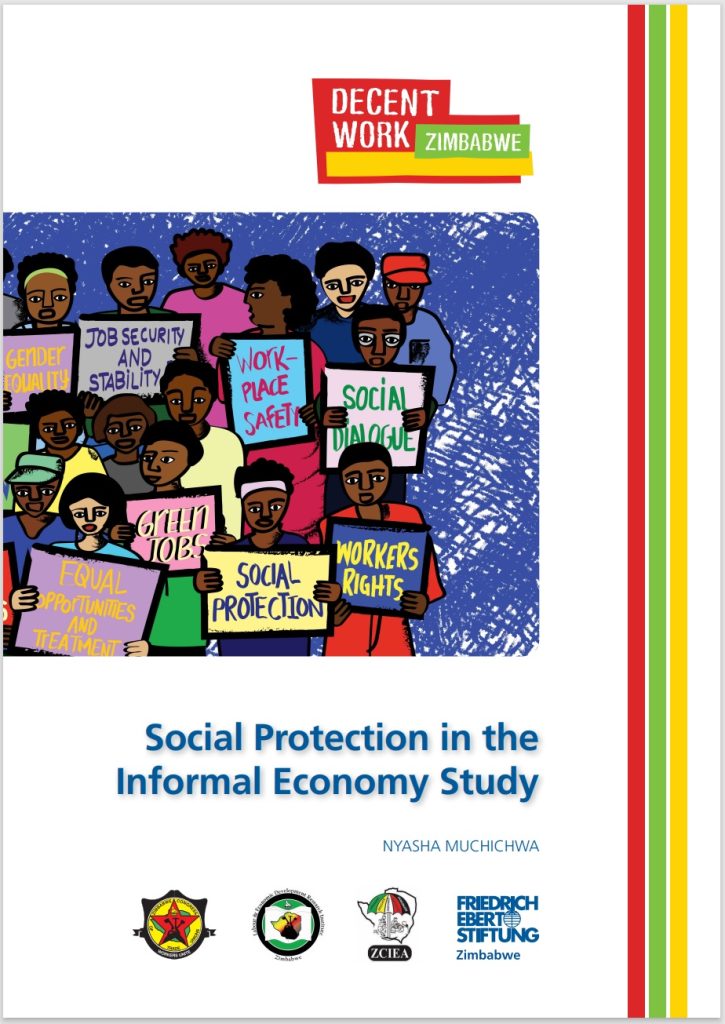
Social Protection in the Informal Economy Study
Study on social protection in the informal economy.
- Year Published: 2019
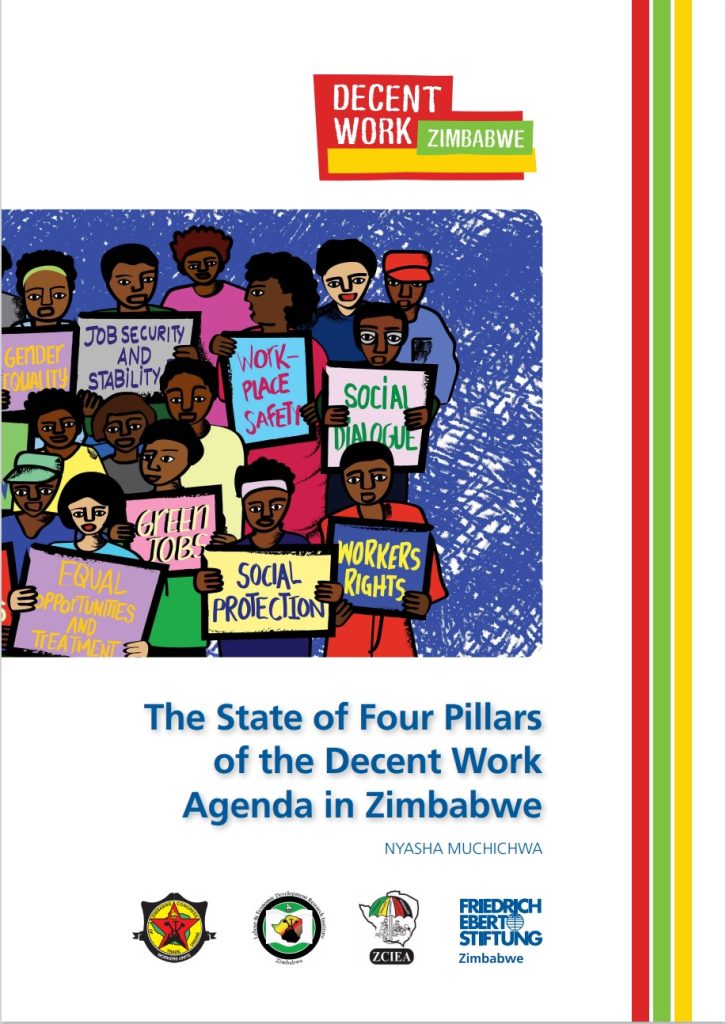
The State of Four Pillars of the Decent Work Agenda in Zimbabwe
The state of the four pillars of the decent work agenda in Zimbabwe.
- Year Published: 2019
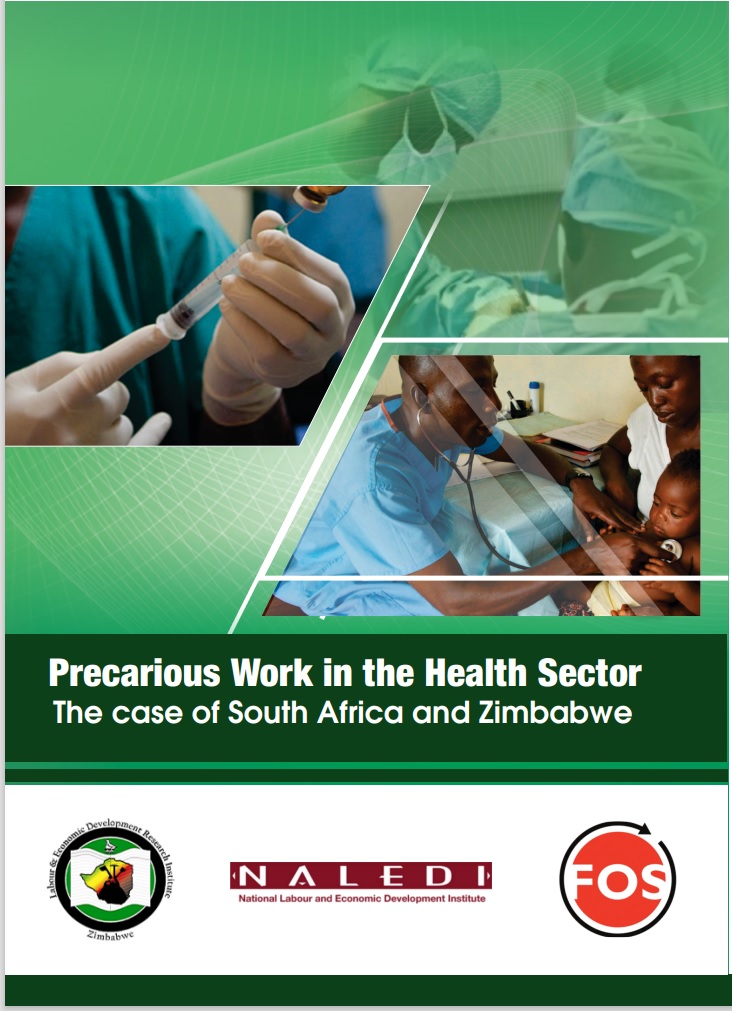
The Nature and Extent of Precarious Work in the Health Sector of South Africa and Zimbabwe.
This research focuses specifically on precarious work in the public health sector in two countries in Southern Africa namely; South Africa and Zimbabwe adds more depth to the subject of precarious work. It is important to underscore the fact that despite being a stable employer; the public health sector has undergone dramatic changes in several African countries in the past three decades due, in part to the neo-liberal policies adopted in various countries in the 1980s. This has been heightened; to a certain extent, by the growing need for a market-friendly economy which implies a reduced role of the state in national economic management.
- Year Published: 2017
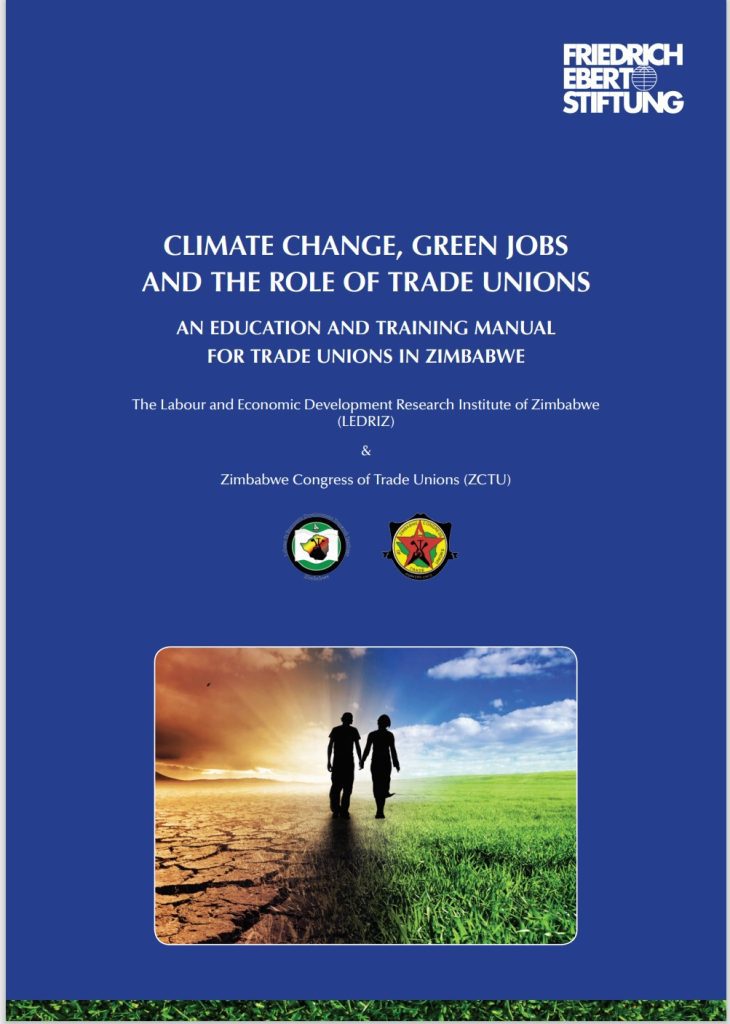
Climate Change, Green Jobs and the Role of Trade Unions: An Education and Training Manual for Trade Unions in Zimbabwe
The objectives of this manual are to:
- Build the capacity of trade unions and workers regarding climate change and how it affects the economy and the world of work.
- Create awareness and raise consciousness on climate change, its effects, challenges, opportunities and the role of trade unions can play in its mitigation.
- Impart knowledge and skills by training workers on climate change, effects, and the related challenges and opportunities for trade unions.
- Year Published: 2016
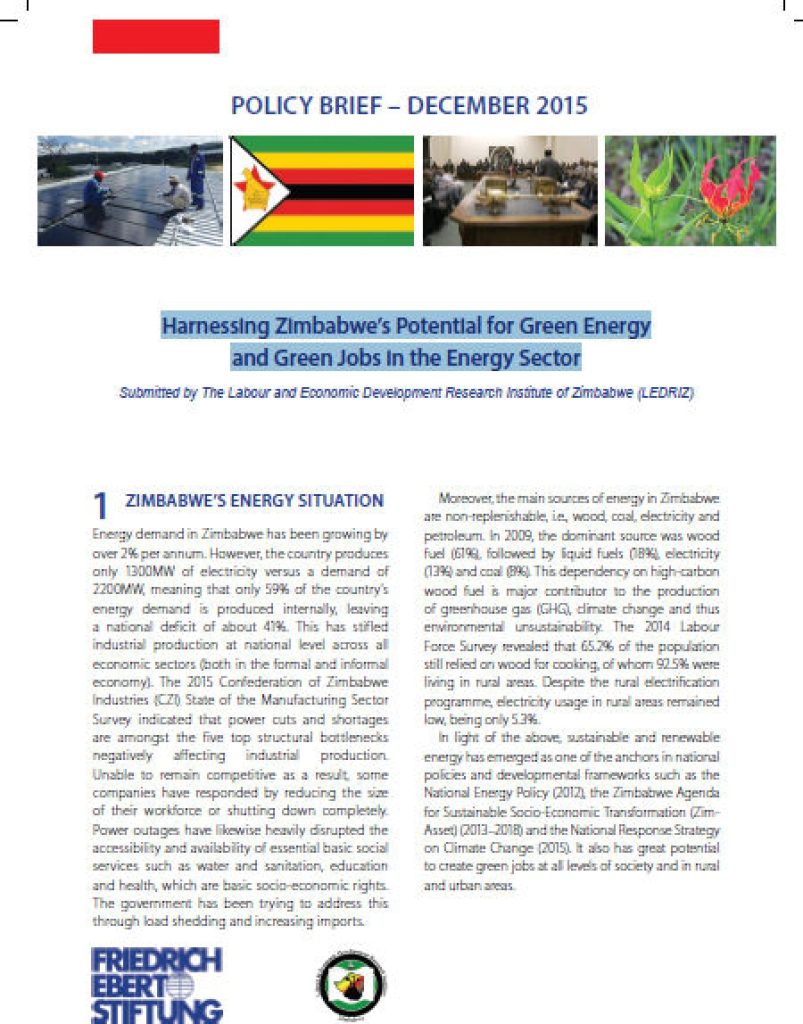
POLICY BRIEF - Harnessing Zimbabwe’s Potential for Green Energy and Green Jobs in the Energy Sector
POLICY BRIEF – Harnessing Zimbabwe’s Potential for Green Energy and Green Jobs in the Energy Sector
- Year Published: 2015
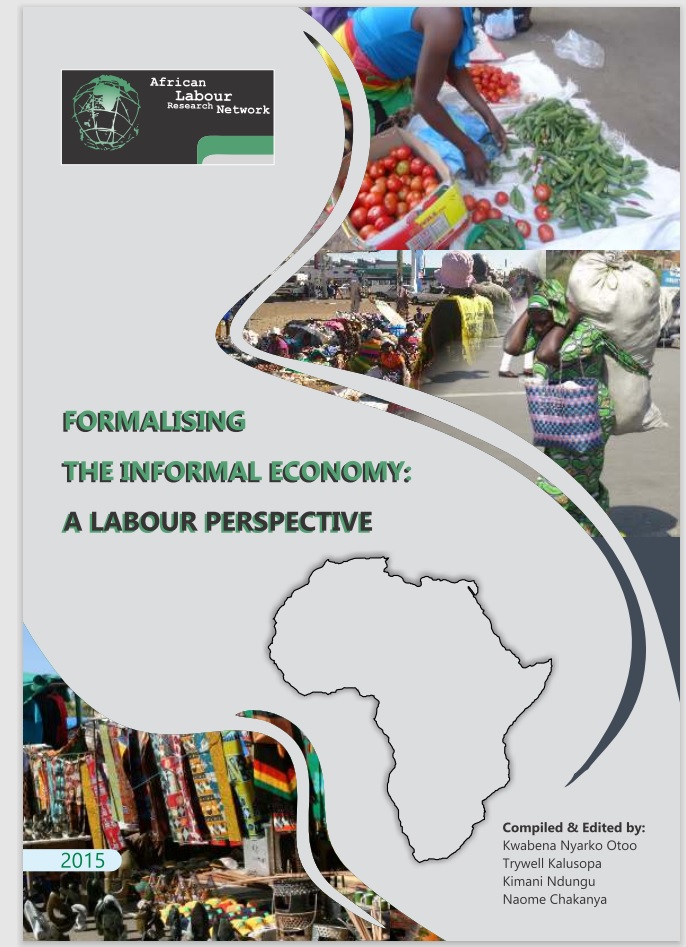
Formalising the Informal Economy: A Labour Perspective
A Publication on Formalising the Informal Economy: A Labour Perspective
- Year Published: 2015
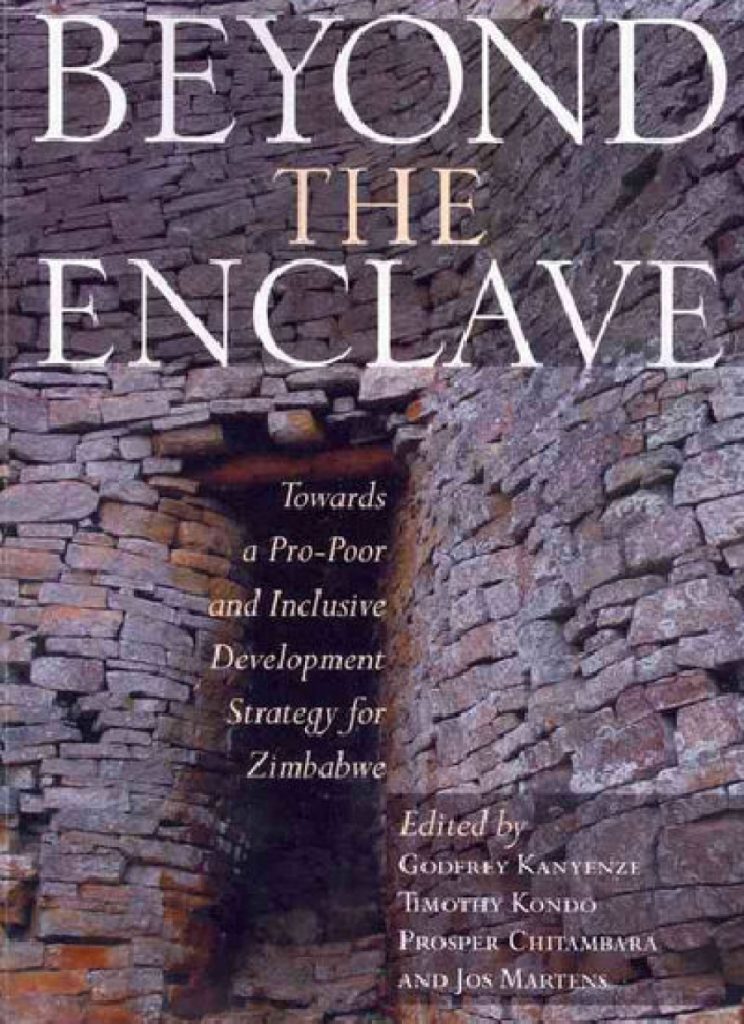
Beyond the Enclave: Towards a Pro-Poor and Inclusive Development Strategy for Zimbabwe
Beyond the Enclave sets out to unravel the contradiction of a country, Zimbabwe, where a rich, diverse resource base co-exists with endemic poverty. One reason lies in the colonial economy, which was predicated on an ideology of white supremacy, creating an enclave formal economy employing one-fifth of the labour force. Yet over three decades after independence, the non-formal segment has become even more entrenched.
- Published in 2011.

My Socio Economic Rights
Reading this booklet will transform your world. Knowing that the necessities of life, such as food security, the highest possible level of health, education, housing, basic public utilities, transport, decent work and a living wage are your socio – economic rights will empower you to defend and exercise them. These rights are entrenched in various international law instruments such as the African Charter on Human and Peoples’ Rights and the United Nations Charter.

Fundamental Social and Economic Rights Framework
The necessities of life such as food, health, education, housing, basic public utilities (water, electricity, sanitation, etc), transport and decent work are socio-economic rights: but this is seldom known. These rights are entrenched in international law instruments such as the African Charter of Human and Peoples’ Rights, the UN Charter. In South Africa they are enshrined in the Bill of Rights section of their constitution. Zimbabwe has not legally adopted these rights, neither does it practice a rights-based approach to development.
- Published 2009

Economic Literacy Manual for Trade Union Trainers and Readers
Manual for trade union trainers on the Zimbabwean economy, globalisation and collective bargaining.
- Published in 2008

The Search for Sustainable Human Development in Africa
In 1995, the Zimbabwe Congress of Trade Unions (ZCTU) developed an alternative to the IMF/World Bank inspired Economic Structural Adjustment Programme (ESAP) called ‘Beyond ESAP, Framework for a long-term development strategy in Zimbabwe beyond the economic structural adjustment programme, (ESAP).’ Following discussions around the ‘Beyond ESAP’ document at various levels (national, regional and continental), it was agreed that given the widespread implementation of neo-liberal policies across the region, continent and indeed at the global level, it was imperative to develop alternatives at all these levels.
- Published in 2008
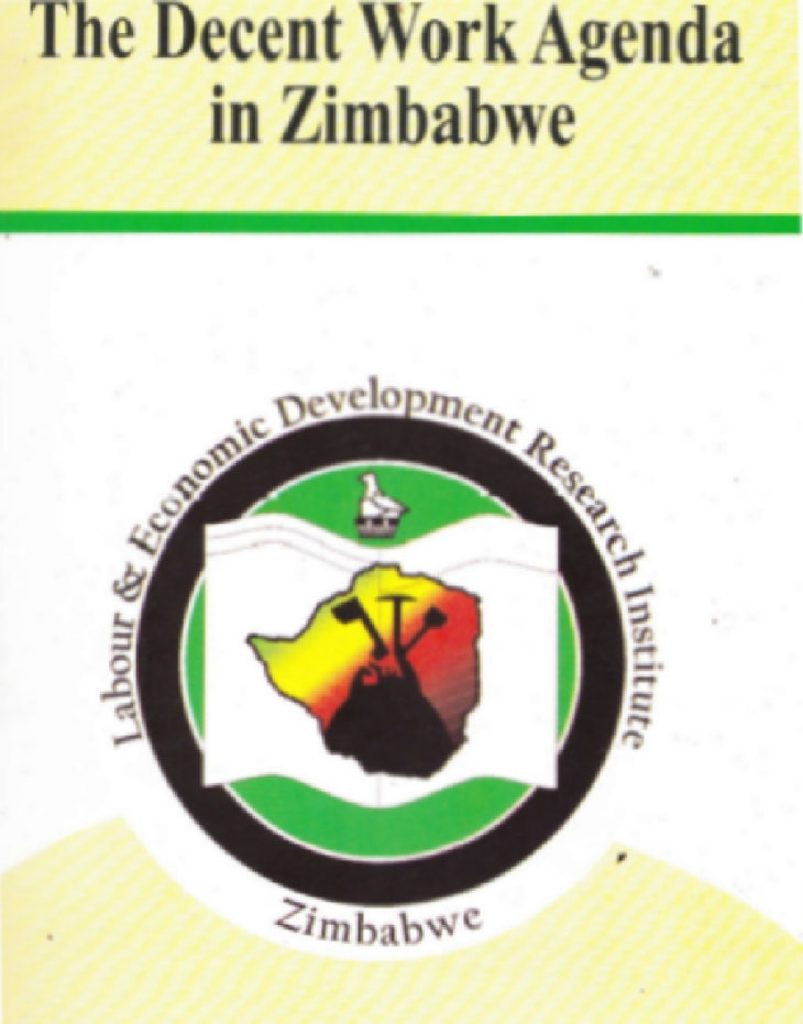
The Decent Work Agenda in Zimbabwe: The Heart of Socio - Economic Progress
This book clearly indicates that the four pillars of decent work agenda should be considered in their totality and not concentrates on some leaving others behind as they all are equally important in the world of work. In fact, social dialogue is one of the vehicles that can be used to advance all the other three pillars of the decent work agenda.
- Published in 2008